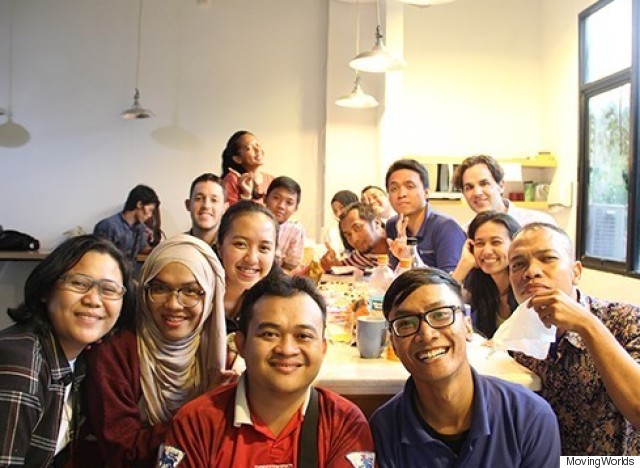
When disaster struck Nepal last year, the world rushed to send donations, resources, and support. This was a sign that we are in the fourth industrial revolution: A world connected -- as people -- by electronic devices. Technology, reaching far off the grid and into the depths of the world's mightiest mountains, showed the earthquake's devastation. For a moment, technology turned the natural disaster into a human catastrophe. Around the world, people saw individuals affected and were moved to donate. The same global response happened after the Paris attacks. Amidst the horror shone the true beauty of human kind.

However, the same year, when natural disaster struck India and terrorism struck Nigeria, the world did not react the same way. The same technology was present, but it did not turn the natural disasters into human catastrophe's that moved the world to action in the way that Nepal and Paris did. Why is this? The same technology that defines the fourth industrial revolution was, but the empathic connection, for some reason, wasn't there. Why not? That's a human problem.
Pause for a moment to watch Google's Zietgiest 2015 video below. Which moments did you react to, and which ones didn't you?
When business, entrepreneurial, nonprofit, and governmental leaders assemble in Davos for the 2016 World Economic Forum to discuss ways that technology can help us achieve the sustainable development goals -- like eliminating poverty, tackling climate change, and reducing inequalities -- they will have to come to a consensus on how technology can make our world more reliant on each other as people, not only more reliant on technology. While the engineering conversations they have about creating connected technical systems are a necessary component, the real consensus they will need to make is how to make us more connected and empathetic in a world where mobile devices put screens between human relations.
To help them, here are ways we can all influence today's and tomorrow's global leaders to make sure that technology makes the world more human.
1. Focus on building and spreading empathy
Jeremy Rifkin's compelling RSA Animate talk highlights why empathy is so important for us. But leaders aren't the only people that can build and spread empathy, you can, too.
2. Develop your human skills
According to the World Economic Forum article, "The 10 skills you need to thrive in the Fourth Industrial Revolution", people-first skills like 'emotional intelligence', 'creativity', 'service orientation', and 'coordinating with others' are on the list. These are skills that are best developed through stretch experiences that develop your leadership skills, including things like Experteering and volunteering.
3. Influence your business and political leaders
Anybody can be a social change agent in their community and business. And for those of us with the power to vote, we can use it responsibly for leaders that stand up for people and inequality, not businesses and wealth.
4. Think about the human on the other end of the conversation
There are humans on the other side of your mobile, computer, and television screen. Think of them as people. Before you cast prejudice, ostracize another person, or cast judgement, beware of your single story, and try to be more human. Here's a book to help.

So follow the WEF on Facebook and Twitter, and remind them to think about #HumanityFirst.
For the second conversation in our Purpose@Work series -- a discussion designed to explore how we can infuse a deep sense of purpose into our work -- we're going to focus on the Fourth Industrial Revolution, the theme of this year's World Economic Forum in Davos.
How are you using technology to elevate purpose in your organization, community, or project? Let us know at PurposePlusProfit@huffingtonpost.com or by tweeting with #PurposeAtWork.
